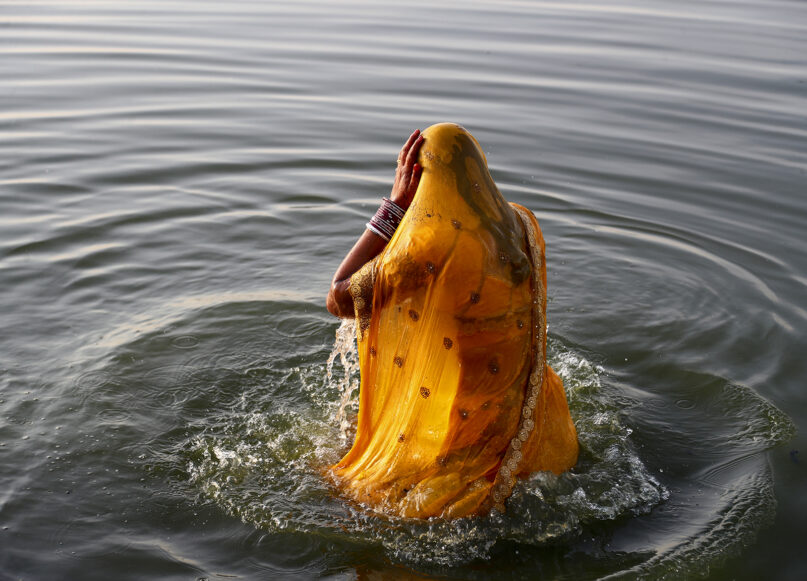(RNS) — With the collapse of President Joe Biden’s plan to pass his Build Back Better bill this year, the United States and the world are nearing the point of no return on the climate.
As environmental activists, we know the difficulty of trying to convince political leaders to put aside their regions’ or countries’ interests (and their electoral interests) in favor of the interests of the planet. The most common tool is to communicate our own dread about what is likely coming with global emissions on the rise. But another way to change everyone’s mindset is to appeal to sacred texts that go back thousands of years and carry significant weight for nearly a sixth of the world’s population.
Hindu scriptures have long valued the equality and equity of all living beings. As the Hindu scholar Anantanand Rambachan has noted, Hinduism, among the world’s largest religions, isn’t anthropocentric, meaning that it doesn’t consider humans the most important part of global existence.
The sacred texts of the Abrahamic faiths put humans atop a hierarchy of animals, plants, waterways, deserts, ice caps and mountains, making mankind stewards of the environment. As a result, even the many faith-based efforts to combat climate change have prioritized the health and well-being of human beings, not all living things.
RELATED: Want to regain young people’s trust? Start treating the earth, and life, as sacred
Hinduism and other dharmic faiths such as Buddhism and Jainism, as well as many global Indigenous and animist traditions, don’t consider humans any more important than other living beings. Hinduism’s central tenet is seeing the divinity in all living beings.
As the Śrīmad Bhāgavatam says, “Ether, air, fire, water, earth, planets, all creatures, directions, trees and plants, rivers and seas, they are all organs of God’s body. Remembering this a devotee respects all species.”
It should be noted, of course, that many Hindus do not always practice that principle. Our organization, Bhumi Global, and others like it have as our goal getting the world’s 1 billion or so Hindus to live up to their scriptural ideals; doing so may go a significant way toward reducing carbon emissions, promoting sustainability and embracing nature as a partner rather than a ward of humanity.
We have worked to convince Hindu temples in countries like India, the United Kingdom and the United States to reduce or eliminate their single-use products that cause so much harm to the environment. Many Hindu groups are making environmental cleanup a part of seva, or selfless service, a key part of practicing one’s dharma in Hinduism.
To be sure, changing the behavior of the world’s Hindu population to embrace the scriptural ideals of Mother Earth is not a solution in itself. It is incumbent upon political leaders to pass policies that hold polluters accountable and promote sustainability and biodiversity.
But at a time when we are searching for manmade answers to a largely manmade problem, some of the divine guidance from the teachings of Hinduism and other non-human-centered faiths can go a long way toward rescuing us from the brink.
(Gopal D. Patel is co-founder and director of Bhumi Global, an international Hindu environmental advocacy group. Murali Balaji is a lecturer at the Annenberg School for Communication at the University of Pennsylvania and the board chair for Bhumi Global. The views expressed in this commentary do not necessarily reflect those of Religion News Service.)
This column is produced by Religion News Service with support from the Guru Krupa Foundation.





